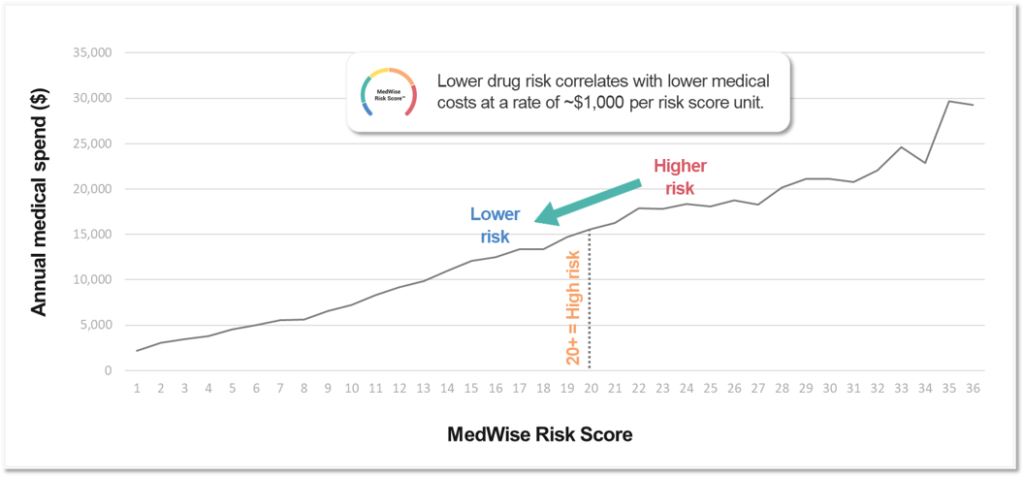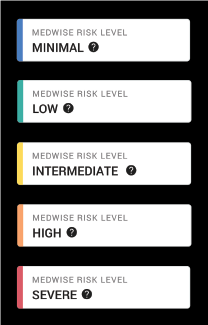About Cerner Corporation
Cerner is a global healthcare information technology company connecting people and systems at more than 27,500 contracted provider facilities worldwide. Together with its clients, Cerner is creating a future where the healthcare system works to improve the well-being of individuals and communities. Cerner employs more than 27,000 associates worldwide. As part of its mission, Cerner focuses on improving the health of communities, beginning with its associates. In Cerner’s role as an employer, through Cerner Health Connections, Inc, they provide associates and families with access to five on-site health centers, with pharmacies. In addition to traditional pharmacy services, four of the Cerner Healthe Clinic pharmacies provide limited clinical services including medication therapy management, asthma management, and hypertension management.
About Tabula Rasa HealthCare
Tabula Rasa HealthCare (TRHC) is a leader in providing patient-specific, data-driven technology and solutions that enable healthcare organizations to optimize medication regimens and reduce medication-related risks, specifically targeting adverse drug events (ADEs). TRHC’s division, MedWise HealthCare, partners with employers, health plans, and healthcare providers to optimize clinical, economic, and humanistic outcomes with a material return on investment. MedWise HealthCare’s technology solution, MedWise® Science, helps improve patient outcomes, reduce hospitalizations, and lower healthcare costs. MedWise Science delivers simultaneous, multi-drug analyses that identify medication-related risks and present actionable opportunities for risk mitigation.
About the Program
In this pilot program, Cerner’s Healthe Clinic pharmacists used MedWise Science. TRHC’s risk stratification and risk scoring predict high-cost episodes of care (e.g., ER visits, hospitalizations) that result from medication-related problems.
The Healthe Clinic pharmacists completed MedWise Safety Reviews (MSRs) for a select group of members identified as high risk for ADEs, the third leading cause of death in the United States.* An MSR is a comprehensive review of a member’s medication regimen, including prescriptions, over-the-counter medications, vitamins, supplements, and herbal remedies.
Using intervention data along with member, pharmacist, and physician satisfaction survey data, TRHC and Cerner analyzed the impact of the technology on member safety and evaluated the use of MedWise Science in an employer-based ambulatory care setting.
Program Methodology
Five hundred members were identified as high risk for medication-related problems and assigned MedWise Risk Scores™. Through TRHC University, Cerner pharmacists were trained and certified to use MedWise Science to identify and resolve complex medication problems and optimize medication regimens. Cerner pharmacists also simulated medication changes to evaluate risk reduction before providing guidance to members and prescribing clinicians.
The pharmacists then completed telephonic and in-person MSR consultations with members who opted in to the program, providing a medication schedule and action plan that summarized what was discussed during the MSR. Prescribing clinicians were also given action plans to reduce medication risk.
Outcomes
A higher risk score correlates with a greater likelihood of medication-related problems and higher costs. The odds of an ADE increase by as much as 8.6 percent per unit increase of a MedWise Risk Score. Each unit corresponds to roughly $1,000 in medical costs, three emergency room visits, and two hospitalizations per 100 members/year.1 For Cerner, members’ MedWise Risk Scores were reduced, on average, by 2.77 which equates to an average of $2,872 per member. If we apply this across the 114 members who received MSRs, Cerner could see potential savings of up to $306,888 in medical spend per year.
Cerner estimated the total cost of resource time needed to complete MSRs was approximately $20,520, which is factored into their potential savings.† Long-term savings may be higher because of positive downstream impacts on associate productivity and presenteeism. Additionally, the COVID-19 pandemic and work-from-home environment made associate engagement a challenge.

Program Performance Metrics
- 45.9 Average age of targeted members
- 114 Number of MSRs completed
- 11.3 Average medication count per member (pre-MSR)
- 2.4 Average number of recommendations per MSR
- 2.77 Average risk score reduction per member
Most common recommendations:
- Recommendation to change medication
- Education about timing of medication administration
- Medication side effects education
- Recommendation to discontinue prescription medication
Medication Risk Stratification and MedWise Risk Score
Risk stratification determines who is at highest risk for ADEs and assigns a MedWise Risk Score between 0 and 50. The MedWise Risk Score is an indicator that helps pharmacists personalize patient regimens to improve safety and reduce preventable ADEs.


Benefits of Collaboration
Members who completed the post-program survey agreed or strongly agreed that pharmacists helped them understand their medications, and stated that they would recommend this service to friends and family
MedWise Science increased Cerner pharmacists’ confidence in their medication recommendations and empowered them to provide enhanced services
Prescribing clinicians indicated that they were more likely to accept recommendations from pharmacists who used MedWise Science
Prescribing clinicians recognized the importance of collaborating with pharmacists
Conclusion
MedWise Science training and technology helped Cerner pharmacists identify and mitigate member medication risks. Members reported that the pharmacists helped them to better understand their medications. Pharmacists and prescribing clinicians found MedWise Science to be a valuable tool to enhance care, improve health, and advance collaboration.
MedWise HealthCare is collaborating with Cerner Corporation to integrate MedWise Science into its electronic health record product(s), using SMART on FHIR and CDS Hooks, for deployment to Cerner clients.
“I have absolutely increased my knowledge base and my confidence in being able to make ‘better’ prescribing recommendations to physicians as the result of this [MedWise] program.”
Healthe Clinic pharmacist
“I found the program to be very helpful. We made quite a few significant changes to longstanding medication lists. I had several patients who felt direct improvement in symptoms after changes that were prompted by a MedWise review… Polypharmacy is a growing concern, and as a provider it is hard to keep track of some of the more subtle ways individual medications can be interacting with each other. Having the pharmacy team review high-risk patients or patients with longer medication lists has a significant benefit.”
Healthe Clinic physician
*Not including COVID-19
- Bankes, D.L.; Jin, H.; Finnel, S.; Michaud, V.; Knowlton, C.H.; Turgeon, J.; Stein, A. Association of a Novel Medication Risk Score with Adverse Drug Events and Other Pertinent Outcomes Among Participants of the Programs of All-Inclusive Care for the Elderly. Pharmacy 2020, 8, 87.
† MedWise license fees were not applicable for this pilot program.